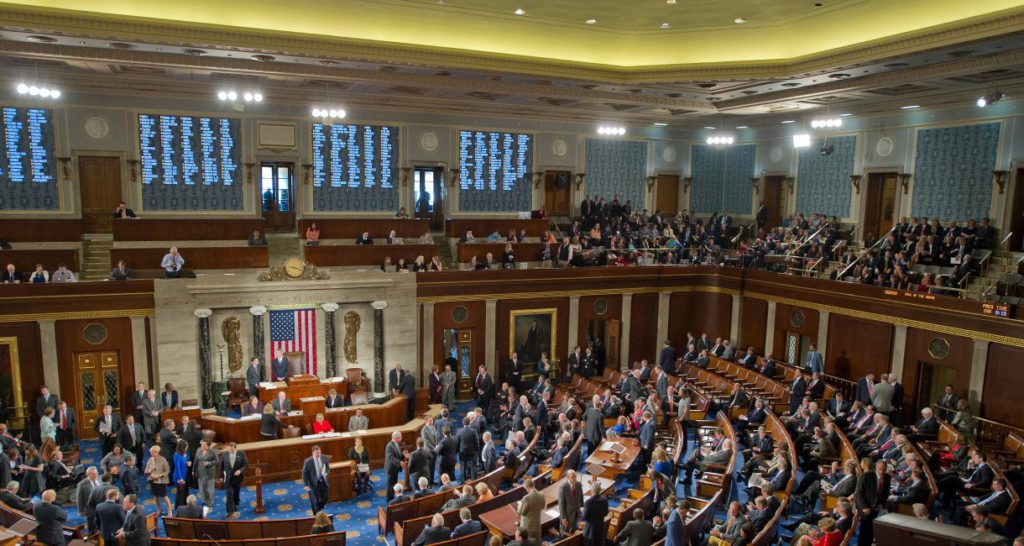The Hearing Aid Tax Credit would ease the financial burden for many of the 32 million Americans who need hearing aids to mitigate hearing loss. Over 10 million seniors require hearing aids to treat hearing loss that occurs gradually but increases dramatically with age. Not only do millions of older Americans have age-related hearing loss, but it is also one of the most common birth defects in the U.S. Around 12,000 children are born each year with a hearing impairment. Medicare and most private insurance policies expressly exclude coverage of hearing aids. Because of this, the cost is the predominant reason people give for not treating their hearing loss.
The Hearing Aid Tax Credit Act, if passed, would offer a tax credit of up to $500 to cover costs for the purchase of a hearing aid that is not covered by insurance. Making both guardians of deaf or hard of hearing, and Americans over age 55 with less than $200K a year income, eligible for the tax credit.

1. Are Hearing Aids a Medical Expense?
Yes, although Medicare and most private insurance policies expressly exclude coverage of hearing aids, hearing loss is considered a medical condition, and hearing aids are medical devices regulated by the FDA. Hearing loss is not classified as a disease, but it is a recognized medical condition. Therefore, some other medical costs that can be associated with hearing loss include not only hearing aids, but also cochlear implants, therapy with a licensed audiologist, and any hearing tests associated with your diagnosis or treatment.

2. Can Hearing Aids Be Used as a Tax Deduction?
In short – yes, if you qualify. All large, uninsured medical and dental expenses during the year—like hearing aids, that can range in cost up to $6,000 and are usually not covered by insurance—can be itemized.
Some examples of IRS qualified medical expenses* include:
- Surgeons, doctors, chiropractors, dentists, psychiatrists, psychologists and other medical practitioner out-of-pocket fees
- Fees associated with in-patient hospital care or residential nursing home care
- Fees for Acupuncture treatments, smoking-cessation programs and weight-loss programs for a specific disease diagnosed by a physician
- Insulin and other prescription drug costs
- Costs associated with admission and transportation to medical conferences relating to chronic diseases you or family members have
- Costs associated with fees for dentures, prescription eyeglasses, contact lenses, hearing aids, and guide dogs
- Fees for transportation to qualifying medical care
- Fees for insurance premiums
*Please see the IRS website for a detailed list.

3. What is the maximum you can deduct for a hearing aid?
It depends. Hearing aids cost between $1000 and $6000 according to this consumer report and you can only deduct the amount of the total medical expenses that exceeds 7.5% of your adjusted gross income.
Keep your receipts! For taxes, if you choose to itemize medical expenses, hearing aids can be tax-deductible, making medical expenses more affordable for people who face relatively high medical costs. So, when compiling your total medical costs, make sure that you include all medical-related expenses including batteries, repairs, supplementary devices, and insurance fees. What are high medical costs? Well, according to the IRS, if your medical costs are greater than 7.5% of your adjusted gross income (AGI) they are considered high (see chart below) and you can deduct qualified medical expenses above that threshold.
| Sample Adjusted Gross Income | Total medical expenses needed to exceed 7.5% threshold |
| $60,000 | $4,500 |
| $70,000 | $5,250 |
| $80,000 | $6,000 |
| $90,000 | $6,750 |
If you have medically diagnosed hearing loss, deductions include any fees you paid for your diagnosis and treatment, even transportation associated with your hearing loss, hearing aids, maintenance, repair, and batteries. Clearly, this process requires that you keep receipts. In short, hearing aids alone may not qualify, but they could be a key factor when combined with your family’s other medical and dental expenses.
If you don’t normally itemize your medical expenses but have significant expenses this past year, such as a hospital stay or surgery, you may want to check with a tax person to learn if you would benefit from itemizing your medical expenses this year. Likewise, if you are planning for surgery or some other high-cost medical expenses this year, it might be a good time to check if you need a hearing aid, so you can deduct it.

4. Can you qualify for the disability tax credit with a hearing aid?
The two different tax credits that can possibly help those with hearing aids are the disability tax credit and the earned income tax credit. The disability tax credit covers people that are 65 and older or retired because of a disability with disability income. To qualify for the disability tax credit for your hearing loss (or any other disability) you will need a statement from your physician that it is severe enough to “bar you from gainful employment.”
According to the IRS website, you may qualify for the Earned Income Tax Credit if “you have earned income and adjusted gross income within certain limits, AND you meet certain basic rules…” Earned Income Tax Credit rules can be difficult to interpret, so, if you are planning to use the disability tax credit or the earned income tax credit you should speak to a tax professional.
Also, for business owners, hearing expenses related to running a business can also qualify for tax deductions. If you had to purchase special phone accessories or any other hearing assistance devices, you may be able to deduct those.

5. What is the Hearing Aid Assistance Tax Credit?
The Hearing Aid Tax Credit would give individuals a credit of $500 for the purchase of a hearing aid, or $1,000 if you need two. The credit could be used once every five years and would be capped at $200K/yearly income for eligibility. Most hearing loss goes untreated due to financial constraints. Over 60% of individuals diagnosed name money as the reason they go without treatment. Hearing aids are for many an out-of-pocket expense since they are not covered under Medicare or most insurance plans. The Hearing Aid tax credit would help many people who require a hearing aid but go without treatment because of financial concerns.

6. How can we get the Hearing Aid Assistance Tax Credit passed?
Contact your U.S. congressional Senators and Representatives and ask them to support this legislation. Then spread the word and encourage friends, parents, educators, and hearing health professionals to do the same.

